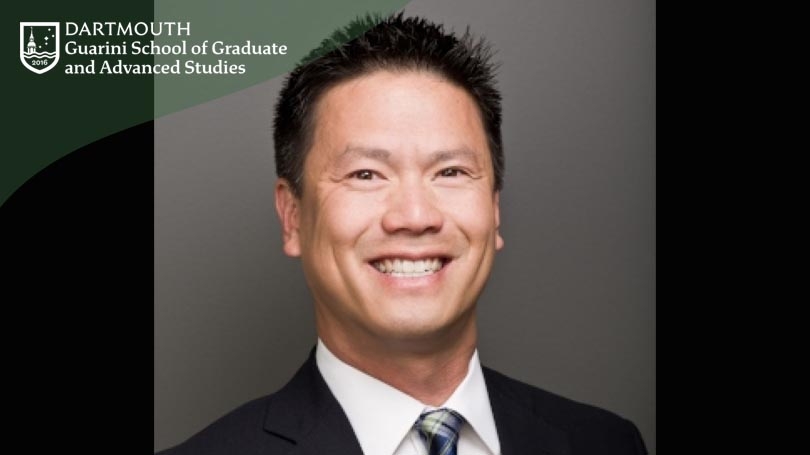Dr. Gifford Wong spoke last month to a multidisciplinary audience at the Dartmouth Center for the Advancement of Learning (DCAL). Wong graduated from Dartmouth in 2015 with a PhD in Earth Sciences and has since transitioned to a policy role in Washington DC. His first foray into policy came early in his PhD when he attended the American Geophysical Union's annual meeting. There he learned about various science policy fellowships that allow scientists to interact first-hand with national policy making.
Following his PhD, Wong worked with US Senator Sheldon Whitehouse and helped write and present weekly speeches on climate change. From there he went on to work in the US Department of State on US-China relations regarding intellectual property. He is now a research scientist at the Institute for Defense Analysis' Science and Technology Policy Institute, where he advises policy makers on science and technology issues ranging from nuclear energy to climate change.
Wong's DCAL talk focused mainly on the many skills acquired during a PhD that translate to the world of policy. The first of these are curiosity and critical thinking. Wong pointed out that these are essential qualities in both "basic" science and policy making. To inform policy one often has to think on their feet about subjects in which they have no training. However, a PhD cultivates the ability to efficiently research new topics and sift through available evidence to extract take-home messages, and this skillset is useful when policy makers ask for quick answers to questions you've never thought of before.
Another useful tool in those situations is leveraging connections to friends or colleagues who specialize in the topic at hand. Wong noted that he has often reached out to people he connected with in graduate school when faced with a question beyond his expertise. In leveraging these connections and bringing scientific expertise to a policy maker, Wong pointed out that clear and concise communication is key, and that communication is another skill honed during graduate school.
The next transferable skill was understanding mechanisms and processes that traverse different scales – both in time and space. As scientists, we work across scales every day, and the ability to understand and explain how processes at one scale affect those at another can be critical when working in policy. Finally, Wong mentioned that participating in organizations and societies as a graduate student has given him additional connections and support networks to rely on when faced with difficult questions about unfamiliar topics.
After his presentation, Wong opened the floor to questions. When asked whether there was anything he would have done differently during graduate school to prepare him for a life in policymaking, he said he sometimes wishes he had stayed in academia for another year or two to make his science background even stronger. He likened science policy work to doing a puzzle without the picture on the box and without knowing if you have all the pieces, and he thought that using the scientific method was very helpful in that process.
One student asked about how daily life changed between living in Hanover as a graduate student and working in DC as a policy maker. Wong mentioned that the biggest changes for him were centered around formality of dress and etiquette – both in-person and over email. Finally, Wong was asked about the role that scientific uncertainty plays in his daily life and in policy making in general. While Wong recognizes the importance of considering uncertainty in the scientific method, he said that the degree to which uncertainty is acknowledged depends both on who you work for and how much time you have to convey the science.
